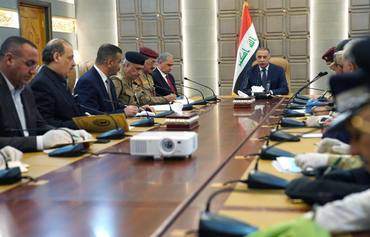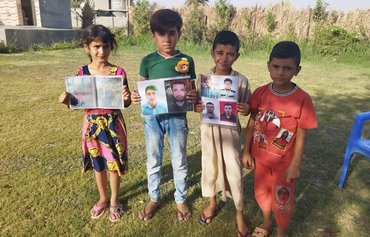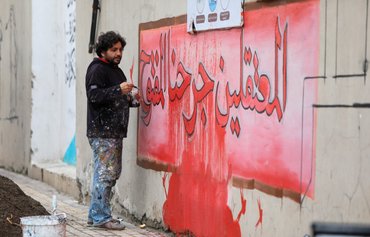The whereabouts of thousands of Iraqis who were "forcibly disappeared" during battles to liberate the country from the "Islamic State of Iraq and Syria" (ISIS) over the past five years remain unknown and their families are seeking answers.
Iraqi authorities are unable to give specific figures for the number of missing people, but political sources in Sunni-majority provinces estimate there are more than 12,000 who remain missing, including youth, elders, women and children.
The same sources say most of the forcible disappearances were carried out by Iranian-backed armed factions of the Popular Mobilisation Forces (PMF).
The missing people were forcibly disappeared in the areas of al-Razaza, al-Saqlawiyah, al-Tharthar and al-Karma in Anbar province; Jurf al-Sakhr in Babil province; Theraa Dijla and Abu Ghraib in Baghdad; Suleiman Bek, al-Siniyah, Samarra and al-Dor in Salaheddine province; and several other towns in the provinces of Kirkuk, Ninawa and Diyala, according to the al-Qarar al-Iraqi Coalition led by former Vice President Osama al-Nujaifi.
Most of the missing people fled during the war on ISIS in 2015 and 2016 and, according to citizen testimonies, were arrested by armed forces operating in co-ordination with the PMF, the coalition said in a September 5th statement.
The discovery of 31 unidentified bodies in the vicinity of Jurf al-Sakhr last month caused an uproar among citizens and heightened fears that many of the missing have already been killed by armed groups outside the law.
Politicians and civil society organisations demanded an investigation into the discovery and that the bodies not be buried until the victims' identities and the circumstances of their deaths can be determined.
Evidence points to secret prisons
Intelligence information indicates that the forcibly disappeared are being held in places outside government authority, MP for Kirkuk province Khalid al-Mafraji told Diyaruna.
They are being held in secret prisons in the city of Jurf al-Sakhr in Babil province, the Sadr al-Qanat area in Baghdad and Ashraf camp in Diyala province, all of which are areas controlled by the militias, he said.
"No one can deny this information because there is ample evidence of it, including the fact that a number of forcibly disappeared have been released from these secret jails in exchange for money, and they are the ones who provided this information and revealed the names of other forcibly disappeared who are still in those jails," al-Mafraji said.
"We are not levying random accusations; we have evidence and we want our people released, or at worst to be tried if there are charges against them," he said.
He called on the government and political parties to come up with a solution to this humanitarian issue so that the suffering "is not exacerbated to the point that some are pushed toward extremism".

![An Iraqi woman holds a picture of her missing son during a protest to demand to know the whereabouts of thousands of missing men. [Photo circulated online]](/cnmi_di/images/2019/09/18/19888-iraq-missing-people-600_384.jpg)






